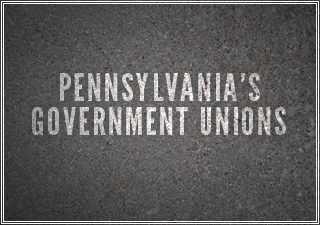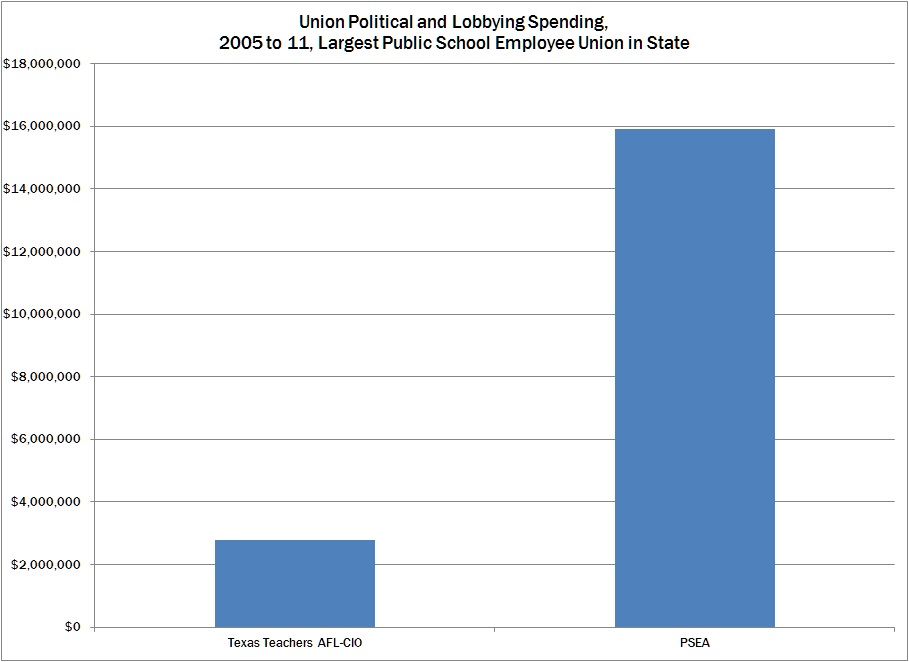Media
Union Privileges Fuel More Money in Politics
 Turns out not everything is bigger in Texas. The Lone Star State has twice the population of Pennsylvania, yet when it comes to political spending, Pennsylvania’s labor unions can outgun Texas any day, according to a comprehensive Wall Street Journal report.
Turns out not everything is bigger in Texas. The Lone Star State has twice the population of Pennsylvania, yet when it comes to political spending, Pennsylvania’s labor unions can outgun Texas any day, according to a comprehensive Wall Street Journal report.
Between 2005 and 2011, Pennsylvania unions spent $36.7 million of member dues on politics and lobbying—7.5 times as much as the $4.9 million that Texas unions spent. The Pennsylvania State Education Association alone spent $15.9 million on politics and lobbying in that time, 5.7 times what Texas’ largest public school employees union spent. How can this be? It comes down to the impressive privileges that unions enjoy in Pennsylvania.
Texas is a right to work state, and a state with no collective bargaining for government workers. In contrast, Pennsylvania is a compulsory union state—meaning workers can be forced to pay dues or fees to unions just to keep their jobs—and grants government unions broad powers in collective bargaining.
Collective bargaining agreements, including state union contracts, often require school districts, state, and local governments to deduct union dues and even Political Action Committee (PAC) money from workers’ paychecks without them ever seeing the money. The effect of these special privileges for government unions is that union bosses spend far more money on politics here in the Keystone State than those in Texas.

Follow the Money data on government union PACs shows a similar discrepancy in contributions directly to political candidates:
- From 2005 to 2012, Pennsylvania government union PACs contributed $12.9 million, 71 percent more than government union PACs in Texas
- As a ratio of total campaign contributions from all individual donors, PACs, and campaign committees, Pennsylvania government union PACs outspent their counterparts in Texas by more than 2 to 1.
Such heavy political spending makes unions one of the most influential players in Pennsylvania politics, and that is bad news for the state. That’s because unions push policies that harm taxpayers, students and families like unsustainable pension costs, rising property taxes, and a government monopoly on liquor stores. Teachers’ unions further preserve hiring and employment policies that hurt good educators, by favoring seniority over job performance.
For more on how unchecked union power hurts Pennsylvania, read The Squeeze.